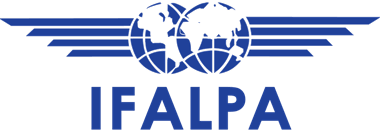Source: IFALPA
The International Transport Workers’ Federation (ITF) and the International Federation of Air Line Pilots’ Associations (IFALPA) have secured significant steps forward in the goal to advancing labour standards at a tripartite meeting at the International Labour Organization (ILO) in Geneva, Switzerland. The conclusions of the April meeting, which recommend measures to progress labour standards, will be formally adopted when approved by the ILO’s Governing Body later this year.
The meeting brought government officials of ILO member countries and employers and workers’ representatives together to examine labour issues in the aviation industry. The goal was to discuss opportunities and challenges in occupational safety and health and the promotion of good jobs to shape the post-pandemic recovery of a sustainable aviation industry.
The ITF and IFALPA worked closely together, with affiliated union-led delegations ensuring a unified, expert voice on aviation workers’ priorities.
The meeting’s conclusions highlight a recognition of aviation unions’ priorities globally. Importantly, they recognise the need to assess the exclusion of aviation workers from protections provided by international labour standards, particularly on issues of health and safety, and call for the ILO to address it. Recommendations were also made urging the ILO and governments to work with employers and unions to achieve gender equality and remove barriers to women’s recruitment, progression, and retention in jobs across the industry.
“Today, jobs in the industry are defined by unpredictable hours, increasing fatigue, insufficient wages, weakened retirement, and non-standard forms of employment,” said ITF General Secretary Stephen Cotton. “We are committed to working with employers and governments to put decent work front and centre to rebuild aviation into an industry that is economically, socially and environmentally sustainable.
“Workers’ health and safety is crucial to the safety of the aviation industry. Decades of deregulation have driven down working conditions and health and safety standards. The industry today is far less attractive to workers, as we saw during the chaos in the industry during northern hemisphere’s summer last year. The reality of aviation jobs has finally been given the recognition they deserve.”
Cotton said that it was the unity between the ITF and IFALPA, and deep knowledge of the industry, that secured this initial win. “Now the work begins to transform these commitments into actions that will raise the standards of our industry and achieve a new deal for aviation workers.”
IFALPA President Capt. Amornvaj Mansumitchai, said: “Our industry is facing serious challenges. Across the world, hundreds of thousands of passengers have had flights
cancelled or delayed, as the industry tried to add capacity while refusing to deal with and acknowledge the causes and issues around a constricted aviation labour supply, including pilots.
“The chaos of last year was not what our recovering industry needed. Aviation unions across the world warned of the consequences of employers’ decisions to fire thousands of skilled aviation workers and use the Covid crisis to further erode labour standards and aviation workers’ rights.
“The ITF and IFALPA will continue to work closely to advance global aviation labour standards and work towards the implementation of recommendations from the ILO technical meeting. We have made important progress but there is a long way to go, and the collaboration between our two organisations will be crucial to achieving success.”

